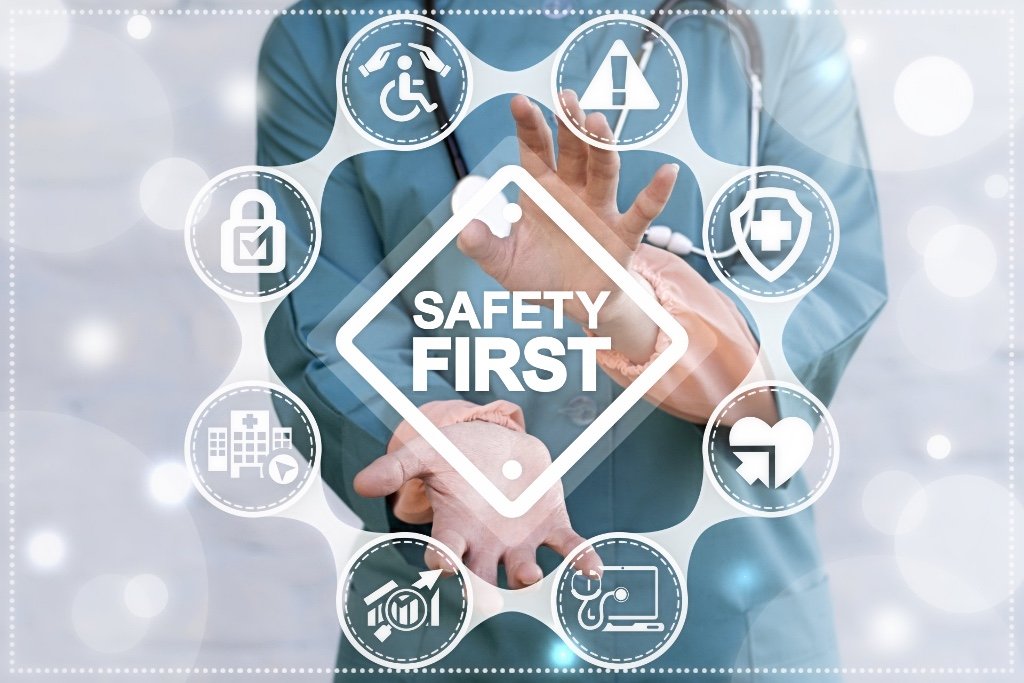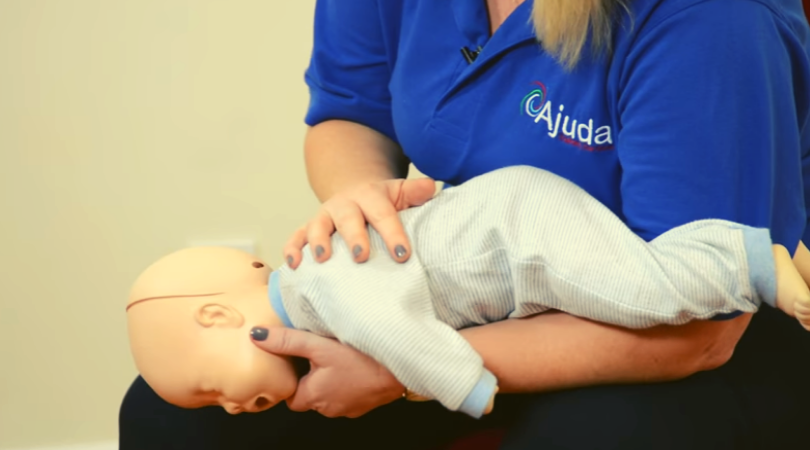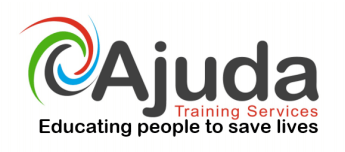This course is tailored for newly hired professionals in health and social care roles. It will equip you with the vital skills needed to deliver high-quality care. The Care Certificate is a nationally agreed set of standards that detail the learning outcomes and requirements that health and social care support workers are expected to be trained in before they can work unsupervised. The Care Certificate ensures that all health and social care professionals have a consistent set of introductory skills, behaviours, and knowledge, enabling them to provide high-quality, compassionate care and support, and to understand their roles within their specific workplace settings. This online training program offers a collection of Interactive courses that will provide you with the knowledge components needed to complete the Care Certificate. You will learn about the theory and skills that you need to demonstrate when you are being assessed for the Care Certificate, and will learn how to deliver high-quality, person-centred care. To fully implement the learning outcomes of the certificate, your employer must also assess your skills practically in your workplace against the Care Certificate Standards.
Understanding Your Role in Care,Your Personal Development, Duty of Care, Equality and Diversity, Work in a Person-Centred Way, Communication, Privacy and Dignity, Fluids and Nutrition, Mental Health Awareness, Dementia Awareness, Disability Awareness, Safeguarding Adults, Safeguarding Children, Emergency First Aid at Work, Health and Safety, Handling Information and Infection Prevention and Control
Number of modules: 17 Course Duration: 17 Hours Course Price: Introductory offer £49 – Usual Price will be £99
Course information
Key Benefits
Modules
(Note: This is based on the video content shown and is rounded off. It does not account in any way for loading time or thinking time on the questions)
Category: Health & Social Care
Modern Slavery

Course Overview
This on E-Learning Modern Slavery course covers the main aspects and concerns over modern slavery, particularly in the UK.
Modern slavery is the recruitment, movement, harbouring or receiving of adults and children.
In the UK, it’s estimated there are more than 130,000 modern slavery victims, and throughout this online Modern Slavery course, we’ll be presenting example case studies.
Modern slavery is wide ranging and includes forced labour, debt bondage and sexual exploitation, along with forced marriage and criminal exploitation.
During this E-Learning Modern Slavery course you’ll discover who’s vulnerable to human trafficking and how they are trafficked, recruited and controlled.
We’ll discuss, during this online Modern Slavery course, the victim’s perspective and show the hidden personal signs of modern slavery and how to identify locations that could act as a base.
You’ll also learn how to report modern slavery, and the role of the National Referral Mechanism during this Modern Slavery online course.
During this Modern Slavery E-Learning course, we’ll suggest ways the government could stop modern slavery and examine the workings of the Modern Slavery Act 2015
Within this modern Slavery online course, we’ll look at the role of small businesses in combatting modern slavery, and provide practical tips, including how to make an anti-slavery pledge.
Finally, we offer useful contact details – including the authorities and charities that provide specialist support for victims of modern slavery at the end of this E-Learning Modern Slavery course.
Modern Slavery Target Audience
This online E-Learning Modern Slavery course is aimed at all employees as it is relevant to most businesses across all industries.
Understanding the most common form of modern Slavery, who is most vulnerable and how to report Modern Slavery is vital in many businesses.
Online training is flexible, efficient and cost effective meaning the candidate can progress through the modules at their own pace and in their own time, so they can fit the training around their work and personal life.
Duration of the course
4 Modules
Approximately 40 minutes
Cost – £35
Health and Safety in a Care Setting
Course information
Care homes are owned and managed by a wide range of organisations, including local authorities, the NHS, and organisations from the private and voluntary sectors. They differ from other workplaces because they are not only places of work; they are also homes for their residents. They should be places where the dignity and freedom of the residents is respected, and where everyone’s health and safety is managed effectively. To achieve this, everyone involved must understand their responsibilities.
This online Health and Safety in a Care Setting E-Learning course discusses the legislation that applies to care homes , the responsibilities of management and employees and looks at developing systems of work. The Health and Safety in a Care Setting E-Learning course also covers what to do in some common hazards you might encounter as well as some Emergency situations. It concludes by discussing some aspects of the work environment and staff welfare.

Health & Safety in a Care Setting Target Audience
This online Health and Safety in a Care Setting E-Learning course is aimed at anyone working in the care sector and should act as an introduction to health and safety in their place of work.
Health & Safety in a Care Setting Advantages
As this Health & Safety in a Care Setting online course covers a wide range of health and safety situations the course provides a strong basis to further build on with more training.
CPD approval means that this course can be used by those that need to prove they are continually developing themselves.
Online training is flexible, efficient, and cost-effective, meaning the candidate can progress through the modules at their own pace and in their own time to fit the training in around their work and personal life.
Number of modules: 9
Course Duration: 80 Minutes
(Note: This is based on the video content shown and is rounded off. It does not account in any way for loading time or thinking time on the questions)
Course Price: £25
Drug and Alcohol Awareness
Course information
This course is aimed at managers and staff in all industries who play a role in reducing drug, alcohol and substance misuse in the UK.
The course starts with official statistics to illustrate the scale of drug and alcohol abuse in the UK. You’ll learn in detail about commonly used drugs, including cannabis, cocaine, heroin, LSD, ecstasy and some new designer drugs.
Turning to alcohol abuse, the course will show you how to introduce a 4-stage plan to deal with any problems – including how to write an effective Drug and Alcohol Policy.
Beyond this the course will explore best business practice in terms of HR, legislation, spotting signs of drug misuse and the implementation of workplace solutions.
The course also explains how the Advisory, Conciliation and Arbitration Service (ACAS) can help with effective alcohol and drugs policies and the development of related management skills. Finally, it looks at current drug treatments and the options for outside support available to individuals and organisations.
Target Audience
This course is aimed at managers and staff in all industries who have a critical role to play in reducing drug, alcohol and substance misuse in the UK. Advantages Online training is flexible, efficient and cost-effective, so candidates can progress through the modules at their own pace, in their own time, making it easy to fit the training around their work and personal life.
Further Progression
Other courses that would be useful for candidates taking this one include Conflict Management, and Leadership skills.

Number of modules: 8
Course Duration: 80 Minutes
(Note: This is based on the video content shown and is rounded off. It does not account in any way for loading time or thinking time on the questions)
Course Price: £35
Paediatric First Aid
Course information
First aid covers a multitude of skill sets and responses to many medical situations. Its primary aim, is to provide immediate medical care and treatment that will either resolve the situation (in less serious ‘everyday’ cases) or provide an essential short-term emergency stop-gap until professional medical assistance is in place.
The aim of this course is to equip you with the theoretical knowledge, skills and confidence you need to deal with paediatric first aid situations. It covers all of the key topics including: emergency planning, assessing a situation, basic Life Support, CPR, shock, fractures, bleeding and a range of other minor illness and injuries.
Please be aware that having a theoretical knowledge on its own is not enough to be considered competent in paediatric first aid and practical demonstration in some areas is required to complete this training. Please contact us to arrange this.
Target Audience
Paediatric first aid is a skill that would be useful for anyone that works with children and infants. This includes those working in nursery, school and pre-school environments, as well as professional childminders, club leaders and sports coaches.
Advantages
Although it can sometimes be difficult in what are often emotionally-charged circumstances, First Aiders need to remain as calm and objective as possible, especially when there is a medical emergency. Having the training and knowledge to deal with the situation effectively
The online format allows you to progress through the modules at your own speed, and at times when it’s convenient for you to absorb the information.
Further Progression
There are a lot of courses in our health and social care suite that would make great follow ups to this course. The main one for people starting out in the early years sector would be Introduction to the Early Years Foundation Stage. Additionally the courses covering Epilepsy Awareness and Diabetes Awareness would complement this course as they go into more detail about these conditions.

Number of modules: 9
Course Duration: 115 Minutes
(Note: This is based on the video content shown and is rounded off. It does not account in any way for loading time or thinking time on the questions)
Course Price: £35
Safeguarding Adults
Course information
Our Safeguarding courses have been created because, first and foremost, each and every one of us has basic human rights. Chief among these is the right to be healthy, happy and treated well, regardless of race, age, gender or location. When these rights are abused in some way it’s wrong, and it is therefore vital that guidelines, policies and procedures are followed to enable everyone, without exception to live a life in which these basic values and rights are maintained and upheld.
This course is aimed at anyone who has a duty of care for, or comes into contact with, adults in need of care and support, either as a paid professional or a volunteer.
This includes, but isn’t limited to, those that work in domiciliary care, the NHS, community centres, prisons or with a family member at home, and sets out the roles and responsibilities everyone must undertake to protect an adult’s right to live in safety, free from abuse and neglect. You and the organisation you work for must take appropriate and proportional measures necessary for the protection of adults in your care, while still ensuring they are supported and empowered to have control over how they want to live their lives and this course can bring you one step closer to being able to do this.
This means that whatever the circumstance, you and the organisation you work for must take appropriate and proportional measures necessary for the protection of adults in your care, while still ensuring they are supported and empowered to have control over how they want to live their lives.
During this course you will hear many facts, figures and details surrounding the risk to adults in need of care and support, the types of abuse suffered and key safeguarding legislation put in place to minimise the abuse of adults with care and support needs. By the end of this course, you will have learned a better understanding of safeguarding principles and be able to apply them to your role.
This includes being able to define the key terminology in relation to safeguarding; identify the principle laws that relate to safeguarding and why they have been put in place to minimise abuse; recognise and respond to the ten types of abuse suffered by vulnerable adults; identify and report concerns of abuse or neglect; describe your role, responsibilities and boundaries; ensure people are supported and encouraged to make their own decisions and give informed consent, and finally manage the environment to minimise the risk of abuse.

Number of modules: 5
Course Duration: 80 Minutes
(Note: This is based on the video content shown and is rounded off. It does not account in any way for loading time or thinking time on the questions)
Course Price: £35
Fire Marshal for Care Homes
Course information
Current legislation, The Regulatory Reform (Fire Safety) Order 2005, applies to all workplaces regardless of the number of employees and requires employers to provide adequate training in fire awareness for all members of their staff.
Our online fire safety training courses are aimed at all employees to assist them in identifying and reducing the risk that fire presents in the workplace.
This course covers the same content as the Fire Marshal course with additional content tailored specifically for employees that work in care homes.

Number of modules: 16
Course Duration: 220 Minutes
(Note: This is based on the video content shown and is rounded off. It does not account in any way for loading time or thinking time on the questions)
Course Price: £35
Principles of Communication
Course information
When working in the adult social care sector, communicating is essential to develop your understanding of a service user’s needs, so you can provide them with the support they require. If the information exchanged is inaccurate or misleading, mistakes can be made which can result in ineffective care and a negative view of the service. Professionals will form many different relationships in their work. Some will be formal and others more informal.
Whoever you are communicating with and whatever the method you use it is essential that you make sure your communication is appropriate and effective.
This course covers some of the different ways of communication, how to identify barriers to
communication and how to reduce these, making sure the person you are communicating with understands what you are communicating, how to get help with communication issues and much more.

Number of modules: 7
Course Duration: 75 Minutes
(Note: This is based on the video content shown and is rounded off. It does not account in any way for loading time or thinking time on the questions)
Course Price: £25
Person-Centred Care
Course information
What do we mean by Person Centred Care, well the term originated in the 1940s and proposed taking a holistic view of service users in care settings. This means getting to know the person and then tailoring their care as much as possible to meet their specific needs. Person centred care is now a key principle outlined in current legislation and it plays an important part in the standards that they set out which must be followed by all care professionals working in this country.
This course will give you an understanding of person centred approaches for care and support, and how to implement a person-centred approach in an adult social care setting.
It starts by explaining what we mean by person centred care and where this term originated. It then goes on to analyse the values represented by person centred care and explains why care should be as much as possible tailored to each service user. Finally it will give you an overview of care plans, daily reports, the importance of obtaining consent and much more.

Number of modules: 6
Course Duration: 45 Minutes
(Note: This is based on the video content shown and is rounded off. It does not account in any way for loading time or thinking time on the questions)
Course Price: £25
Handling Information in a Care Setting
Course information
When working in a care setting it is so important to build positive relationships with care users. Confidentiality and the correct handling of personal information are vital for trusting relationships and a breach in this may lead to a service user becoming unwilling to cooperate with their care providers.
This course provides an introduction to the concept of handling information in care settings. At the end of the course you will understand the need for secure handling of information and you will know how to access support if you have any questions regarding access to information. The course will cover the important role confidentiality plays in developing trusting relationships with the people in your care and it will define key terms such as ‘need to know’ and ‘consent’. It also touches on the legislation that is in place relating to the handling and storing of information and the obligations each person has under these laws.

Number of modules: 2
Course Duration: 20 Minutes
(Note: This is based on the video content shown and is rounded off. It does not account in any way for loading time or thinking time on the questions)
Course Price: £25
Nutrition & Hydration
Course information
If you are part of a team responsible for people’s nutrition and hydration, it’s important that you understand the terms that are being used, the nutritional requirements of the service users and the possible consequences of getting it wrong.
This course will start by defining the various terms used when talking about nutrition and hydration in care environments, the basic elements of nutrition and eating a healthy balanced diet, identify the reasons why vulnerable people might suffer with dehydration and the tools you can use to identify people that are at risk of malnutrition and the steps you can take to deal with this condition.

Number of modules: 7
Course Duration: 65 Minutes
(Note: This is based on the video content shown and is rounded off. It does not account in any way for loading time or thinking time on the questions)
Course Price: £25
Dignity & Privacy
Course information
There are two crucial attributes you must have when working with people in a caring, supportive environment. First, all service users must be treated with dignity and the second crucial attribute is privacy.
The course will start by defining dignity and privacy within the healthcare sector, and will explain how the two are quite often linked. It will then go on to give you a range of useful professional tips about setting up the right working relationship with your service users, and discuss some of the issues that can arise when dignity and privacy are not respected.

Number of modules: 7
Course Duration: 50 Minutes
(Note: This is based on the video content shown and is rounded off. It does not account in any way for loading time or thinking time on the questions)
Course Price: £25




